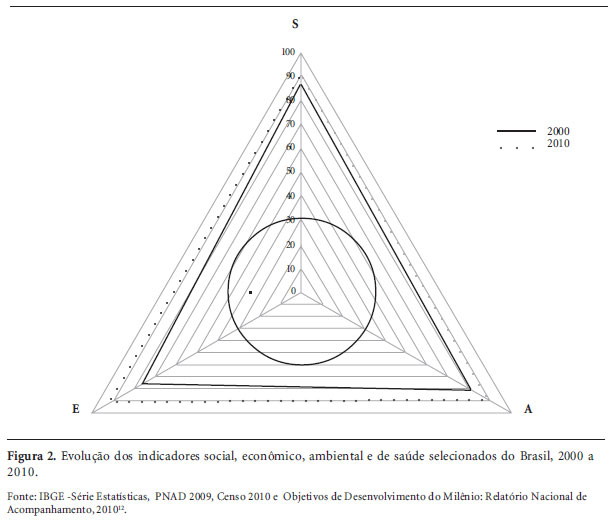Despite its progress in terms of socio-economic indicators, Brazil is still unequal, which is due to an unequal and exclusionary historical process. In this paper we selected the Human Development Index - HDI and other social, economic, environmental and health indicators to exemplify this situation. We selected the municipalities that had the lowest HDI in the country in 2000 comparing their evolution over time between 2000 and 2010 by means of indicators linked to the economic, environmental and social pillars of sustainable development. These municipalities have an HDI classified as low (<0.500), and correspond to countries such as Laos, Yemen, Haiti and Madagascar. At national level, data for the decade show a significant improvement in economic indicators (decrease from 23% to 8.9% of people living on less than a quarter of the minimum wage); social indicators (increase from 86.5% to 90.2% of literacy in women), and the environmental indicator associated with access to the water grid, which also improved to a lesser extent (increase from 81% to 85%). It was concluded that in order to achieve sustainable development with quality of life, the improvement of sanitation and education indicators should be a priority for Brazil.
environmental health; inequality; sustainable development




